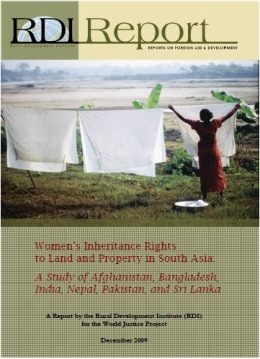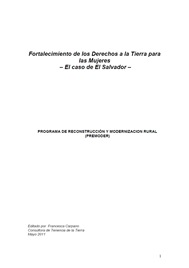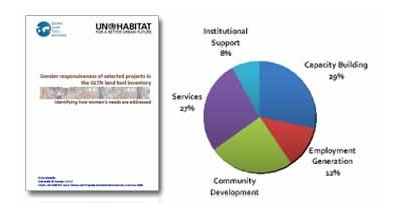Women’s Inheritance Rights to Land and Property in South Asia
This is a 2009 study undertaken by the Rural Development Institute, now Landesa, and authored by Elisa Scalise. It focuses on six South Asian countries (Afghanistan, Bangladesh, India, Nepal, Pakistan, and Sri Lanka) and addresses both formal and customary laws and pratices governing women's inheritance rights.









